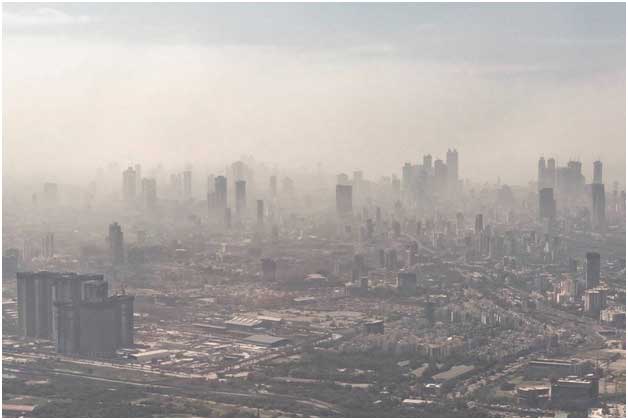By Emily Thampoe
UN, Jun
While there have been efforts in major cities to combat the grave effects that pollution can have on the overall health of its citizens, there is still more progress to be made.
Karen Beck Pooley, a Professor of Practice of Political Science and the Director of Lehigh University’s Environmental Policy Design program, told IPS: “One thing that we’ve always known but we haven’t paid as much attention to until fairly recently is the degree to which people’s immediate environments affect their health.”
The importance of recognising air pollution as a prevalent problem was emphasised by the theme of the recent 2019 World Environment Day, with official celebrations held in this year’s host country, China.
Additionally, reports such as the one released recently in Sarajevo, and titled “Air Pollution and Human Health: The Case of the Western Balkans”, highlighted the adverse effects on the public.
Talking on the implications of air pollution, Catriona Brady, Head of the World Green Building Council’s Better Places for People campaign told IPS that, “air pollution is considered to be the biggest environmental threat to human health today”.
“Research shows that over 90% of people across the world are exposed to unsafe levels of air pollution, which includes both the population in big cities and small communities. The effect this pollution has on citizen health is quite horrifying – studies suggest that almost every organ of the human body can be affected by toxic airborne particles, and this is resulting in an approximate 7 million premature deaths each year.”
Pooley notes that the actual planning of cities can have an impact on the amount of pollution produced, saying that, “The way we build our cities and the way people organise their lives in them, affect how much we need car travel or truck traffic. Or environmentally dirty things that we need like trash facilities and where these things are located and who’s living in the midst of the effects of those things.”
While there are positive plans, such as Canadian Prime Minister Justin Trudeau’s decision to phase out coal usage in his country by 2030 or Kenyan President Uhuru Kenyatta’s plan to ban single-use plastics from being used in the country’s national parks, there are also efforts being made on both smaller and larger scales worldwide.
Pooley observes, “At the moment, most of the environmental conservation work and attempts to reduce greenhouse gas emissions and things of that nature are coming from cities.”
Brady says that her
“With this
She also said: “We’re advocating for the
Pooley states that citizens can make small changes that will be helpful as well. “Cutting down on car travel can be a big
Day to day actions can be quite helpful but having policies put in place may also help deter the harmful effects that poor air quality is having on the lives of those who inhabit such areas.
Brady suggests something similar, while also maintaining that citizen action is important. Policy initiatives – such as the recent London Ultra Low Emission Zone – can help
Policy enforcement around energy generation, building energy efficiency, construction practices, transport, waste
“But the role of the citizen is also important; reducing the emissions from our lifestyle in terms of energy consumption and choices, diet, and transport methods are all achievable for the individual,” said Brady.
“And if you’re worried about being exposed to pollution by cycling or walking to work, then it’s worth knowing that you’re generally exposed to far higher levels of pollutants in a car in traffic or in an underground system!”
With world leaders proposing plans to help deter ruinous environmental effects and with cities implementing new policies to help out, it is clear that progress is being made in helping to create cleaner environments to live in.




